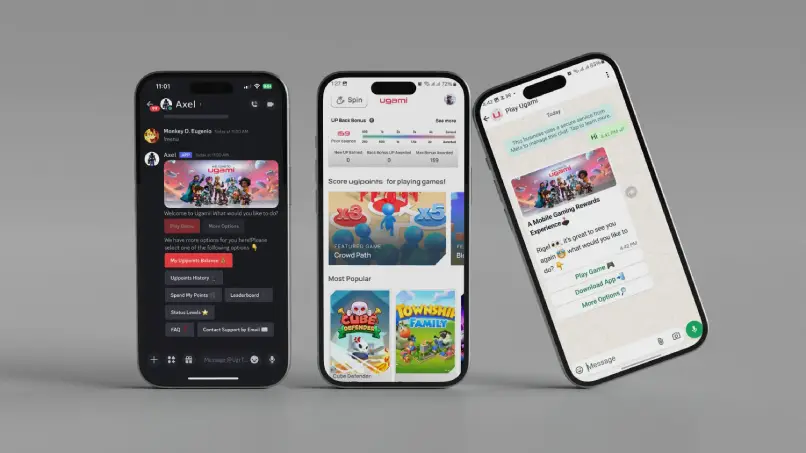Start earning today: play to earn rewards and maximize your gaming time
Start earning today: play to earn rewards and maximize your gaming time
Blog Article
Why Play-to-Earn Incentives Are Transforming the Method You Play and Earn
The emergence of play-to-earn models symbolizes a remarkable shift in the gaming landscape, inviting players to check out not only the entertainment value of games but additionally their prospective as income-generating systems. Understanding these characteristics increases essential questions about the future of pc gaming and the ramifications for both players and designers alike.
Emergence of Play-to-Earn Designs
In recent times, the pc gaming industry has experienced a considerable makeover with the emergence of play-to-earn versions, essentially modifying just how players engage with electronic environments. This innovative method allows gamers to get concrete rewards with their in-game tasks, developing a change from conventional video gaming standards where pleasure and competitors were the key motivations.
Play-to-earn versions utilize blockchain innovation and non-fungible tokens (NFTs) to provide gamers with ownership of in-game properties, which can be traded or sold for real-world money. Consequently, gamers are incentivized to invest effort and time into games, fostering a feeling of company and economic chance. play to earn rewards. This shift has brought in a diverse gamer base, consisting of those that may have previously watched gaming as a simply leisure task
Numerous platforms have emerged, showcasing successful implementations of this design, such as Axie Infinity and Decentraland. These systems have not just produced substantial revenue but also sparked discussions around the sustainability and ethics of such financial systems. As play-to-earn versions remain to develop, they guarantee to redefine the partnership in between gamers, programmers, and the broader digital economy, leading the way for a new age in video gaming.
Benefits for Players
As gamers engage with play-to-earn models, they unlock an array of advantages that prolong beyond simple home entertainment. Unlike conventional video gaming, where gamers invest time and cash without concrete returns, play-to-earn systems permit players to earn copyright or in-game possessions that can be converted to real-world worth.
In addition, play-to-earn models promote community structure among players. Gamers usually team up to attain shared objectives, thereby growing social connections that enrich the general experience. This feeling of neighborhood can result in cooperative gameplay, where players share strategies and sources, boosting both personal and group achievements.
In addition, these versions can democratize access to pc gaming by enabling players from varied financial backgrounds to profit economically. By joining play-to-earn environments, individuals can obtain abilities and knowledge concerning blockchain innovation, further widening their occupation opportunities in the burgeoning electronic economy. Inevitably, the benefits for players prolong well beyond gameplay, influencing their social, economic, and instructional landscapes positively.
Obstacles in the Environment
While the play-to-earn environment offers substantial opportunities, it is not without its difficulties. Variations in worth can sites discourage potential gamers who seek steady revenue streams.
An additional obstacle is the risk of rip-offs and deceptive systems that can plague the ecosystem. Players might run into deceitful systems guaranteeing high incentives but ultimately causing economic loss. Guaranteeing trust fund and protection is vital for the long-term feasibility of play-to-earn designs.
Additionally, the ecological impact of blockchain video gaming can not be ignored. The power usage related to mining and transaction processing increases honest concerns about sustainability. Video game developers have to discover a balance between gratifying gamers and lessening eco-friendly footprints.
Last but not least, the regulative landscape is still evolving, posturing potential dangers for developers and gamers alike. Uncertain like this lawful frameworks can hinder innovation and limit the development of play-to-earn ecosystems. Attending to these difficulties is crucial for realizing the complete capacity of this transformative pc gaming paradigm.
The Role of Blockchain Innovation
Blockchain modern technology acts as the foundation of the play-to-earn ecological community, resolving most of the difficulties previously laid out. By using decentralized journals, blockchain makes certain transparency and safety in deals. Gamers can with confidence gain and trade in-game assets, knowing that ownership is verifiable and exempt to control.

Tokenization of assets plays a vital function, providing players real possession of their in-game items, which can be gotten, marketed, or traded on different marketplaces. This urges a lively second market, where players can monetize their abilities and time bought the game.
Furthermore, blockchain technology allows interoperability between various video games and platforms, enabling players to bring their possessions across various communities. This adaptability not just improves user experience but additionally promotes a much more comprehensive pc gaming atmosphere, inevitably reshaping the landscape of pc gaming and earning.
Future Trends in Gaming
The gaming check out here industry is on the brink of a transformative evolution, driven by emerging modern technologies and changing gamer expectations. As play-to-earn versions gain grip, players are progressively looking for immersive experiences that mix amusement with substantial incentives. This change is motivating designers to introduce, concentrating on producing engaging gameplay that fosters area and communication.
One remarkable trend is the assimilation of virtual truth (VR) and increased fact (AR), improving the video gaming experience by providing deeper immersion and interactive environments. In addition, innovations in man-made knowledge are enabling a lot more sophisticated non-player personalities (NPCs) and flexible gameplay, customizing experiences to private player preferences.

Verdict
Finally, the play-to-earn version is substantially transforming the gaming landscape by allowing players to derive real-world value from their in-game tasks. This paradigm shift not only improves player involvement and financial investment however also elevates obstacles that should be resolved to ensure sustainability within the community. As blockchain technology continues to promote ownership of electronic possessions, the future of gaming assures additional development and possibilities for players throughout diverse histories.
Report this page